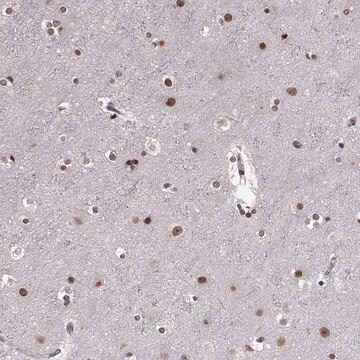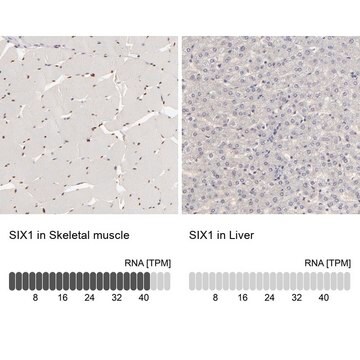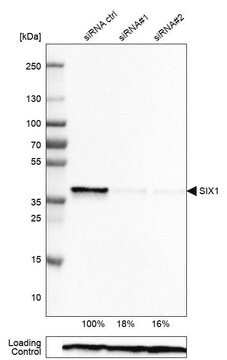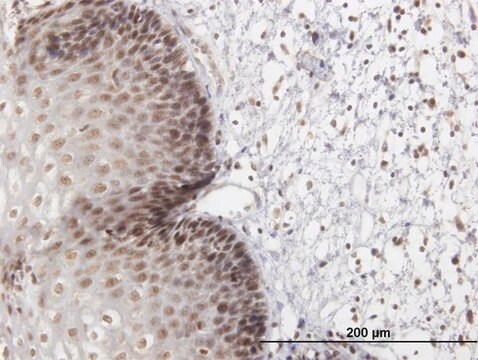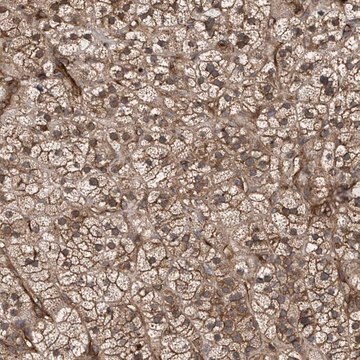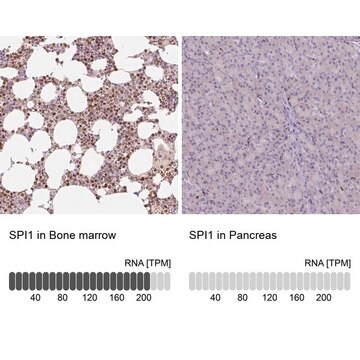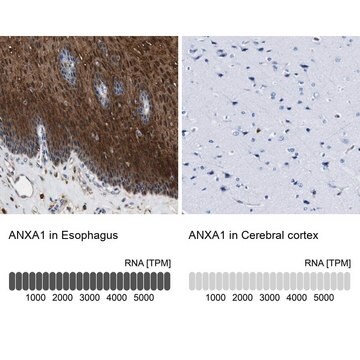SAB1405710
Anti-DFFA antibody produced in mouse
purified immunoglobulin, buffered aqueous solution
Sinónimos:
DFF-45, DFF1, ICAD
About This Item
Productos recomendados
origen biológico
mouse
Nivel de calidad
conjugado
unconjugated
forma del anticuerpo
purified immunoglobulin
tipo de anticuerpo
primary antibodies
clon
polyclonal
Formulario
buffered aqueous solution
mol peso
antigen ~36.5 kDa
reactividad de especies
human
técnicas
indirect immunofluorescence: suitable
western blot: 1 μg/mL
Nº de acceso NCBI
Nº de acceso UniProt
Condiciones de envío
dry ice
temp. de almacenamiento
−20°C
modificación del objetivo postraduccional
unmodified
Información sobre el gen
human ... DFFA(1676)
Descripción general
Inmunógeno
Sequence
MEVTGDAGVPESGEIRTLKPCLLRRNYSREQHGVAASCLEDLRSKACDILAIDKSLTPVTLVLAEDGTIVDDDDYFLCLPSNTKFVALASNEKWAYNNSDGGTAWISQESFDVDETDSGAGLKWKNVARQLKEDLSSIILLSEEDLQMLVDAPCSDLAQELRQSCATVQRLQHTLQQVLDQREEVRQSKQLLQLYLQALEKEGSLLSKQEESKAAFGEEVDAVDTGISRETSSDVALASHILTALREKQAPELSLSSQDLELVTKEDPKALAVALNWDIKKTETVQEACERELALRLQQTQSLHSLRSISASKASPPGDLQNPKRARQDPT
Acciones bioquímicas o fisiológicas
Forma física
¿No encuentra el producto adecuado?
Pruebe nuestro Herramienta de selección de productos.
Código de clase de almacenamiento
10 - Combustible liquids
Clase de riesgo para el agua (WGK)
WGK 1
Punto de inflamabilidad (°F)
Not applicable
Punto de inflamabilidad (°C)
Not applicable
Elija entre una de las versiones más recientes:
Certificados de análisis (COA)
¿No ve la versión correcta?
Si necesita una versión concreta, puede buscar un certificado específico por el número de lote.
¿Ya tiene este producto?
Encuentre la documentación para los productos que ha comprado recientemente en la Biblioteca de documentos.
Nuestro equipo de científicos tiene experiencia en todas las áreas de investigación: Ciencias de la vida, Ciencia de los materiales, Síntesis química, Cromatografía, Analítica y muchas otras.
Póngase en contacto con el Servicio técnico